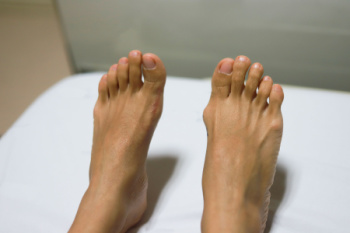
While bunions are more common in adults, they can also develop in children. Pediatric bunions often result from inherited foot structures, where genetic factors influence bone alignment. Unlike adults, children's bunions tend to be softer, although they may still cause discomfort and visible bumps on the side of the big toe. Children with flat feet or hypermobility are more prone to bunions, especially if there is a family history. Unfortunately, bunions will not go away on their own and may worsen over time, particularly as children grow and become more active. Early intervention helps prevent progression. Wearing supportive shoes with wide-toe boxes and arch support can alleviate pressure. If you have a child with a bunion, it is suggested that you schedule an appointment with a podiatrist so the severity of the bunion can be assessed, and individualized treatment options are offered for long-term foot health.
If you are suffering from bunions, contact Donovan Gowdie, DPM of The Foot & Ankle Treatment Center. Our doctor can provide the care you need to keep you pain-free and on your feet.
What Is a Bunion?
A bunion is formed of swollen tissue or an enlargement of boney growth, usually located at the base joint of the toe that connects to the foot. The swelling occurs due to the bones in the big toe shifting inward, which impacts the other toes of the foot. This causes the area around the base of the big toe to become inflamed and painful.
Why Do Bunions Form?
Genetics – Susceptibility to bunions are often hereditary
Stress on the feet – Poorly fitted and uncomfortable footwear that places stress on feet, such as heels, can worsen existing bunions
How Are Bunions Diagnosed?
Podiatrists often perform two tests – blood tests and x-rays – when trying to diagnose bunions, especially in the early stages of development. Blood tests help determine if the foot pain is being caused by something else, such as arthritis, while x-rays provide a clear picture of your bone structure to your provider.
How Are Bunions Treated?
- Refrain from wearing heels or similar shoes that cause discomfort
- Select wider shoes that can provide more comfort and reduce pain
- Anti-inflammatory and pain management drugs
- Orthotics or foot inserts
- Surgery
If you have any questions, please feel free to contact our office located in Watkinsville, GA . We offer the newest diagnostic and treatment technologies for all your foot care needs.
